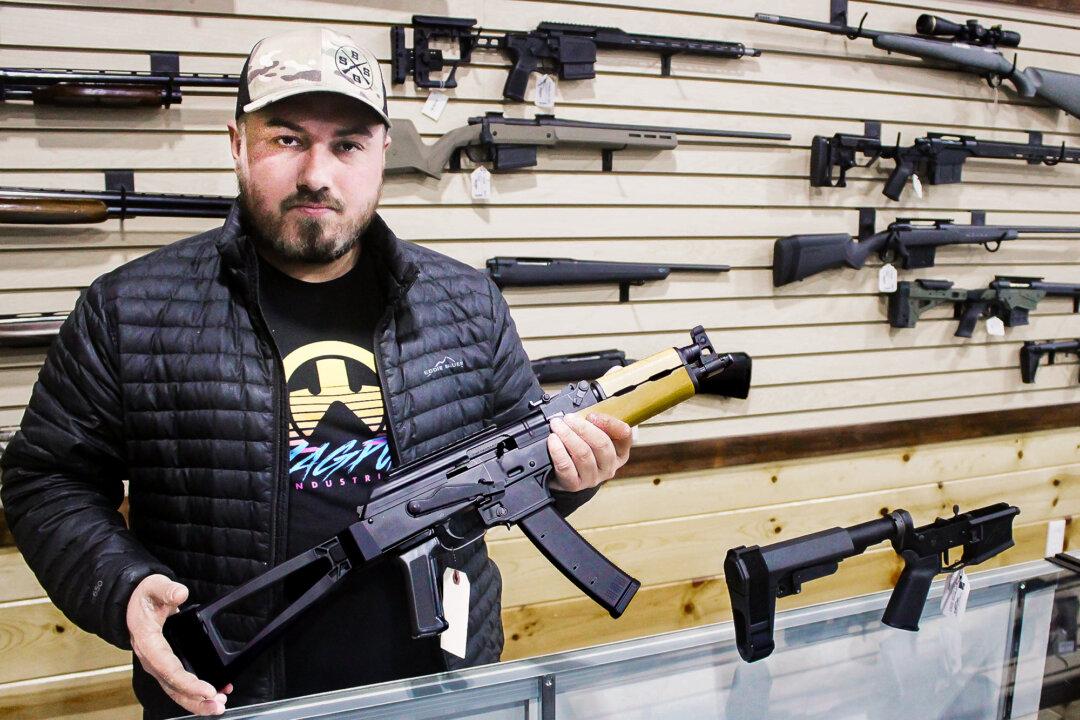A federal judge in Florida granted a request for a preliminary injunction to block enforcement of a new federal gun law related to stabilizing braces and whether they convert firearms into short-barrel rifles.
The Bureau of Alcohol, Tobacco, Firearms and Explosives (ATF) cannot enforce the rule against individuals who live “in the state of Florida,” U.S. District Judge Mary Scriven wrote in an order this week.





